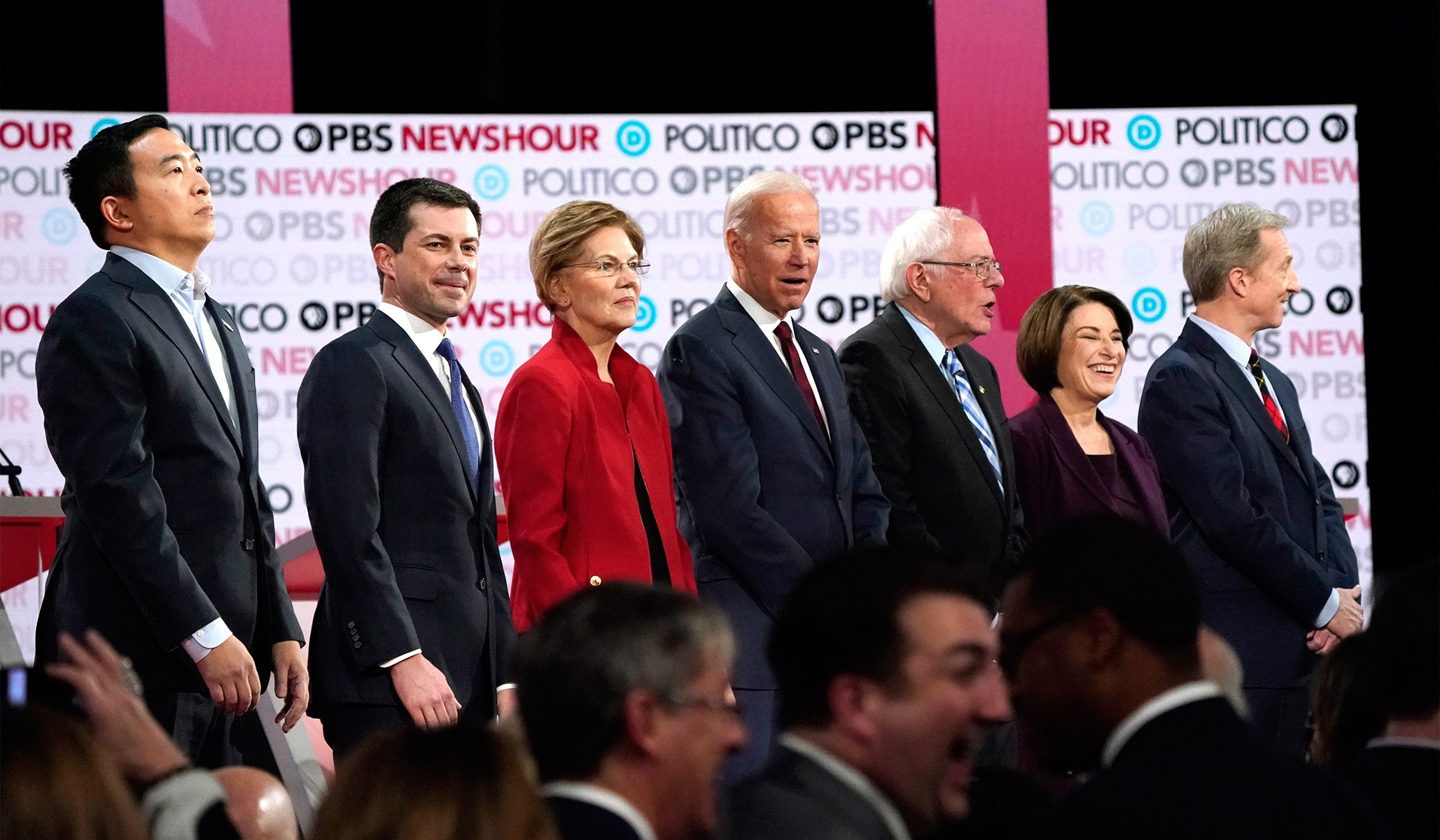By: Jim Geraghty – nationalreview.com – January 2, 2020
Julian Castro is departing the presidential race, Cory Booker may not be far behind, and as I write on the home page today, Andrew Yang is going to have a hell of a time hitting 15 percent and winning a delegate in Iowa, New Hampshire, Nevada, or South Carolina. If you think there’s grumbling about the Democratic debate stage being all white except for Yang right now, just wait. There’s a good chance that two months from now, every delegate in the first four contests will have gone to one of four white candidates: Joe Biden, Bernie Sanders, Elizabeth Warren, or Pete Buttigieg. (Alexandra’s right, this is a four-candidate race.)
This might just be enough to spur some serious talk of changing the order of primary states — if not for insufficient ethnic diversity in those first four states, then out of the general sense that 46 other states would like a turn going earlier. But as far as it goes, those first four are lacking some features found in many other parts of the country. As Castro observed, “I’ve gotten asked more about ethanol in Iowa than I ever have about mass transit or transportation.”
According to the U.S. census, Iowa’s population is 90.7 percent white and New Hampshire’s is 93 percent. According to the U.S. Census, 74 percent of Nevadans identify as white and 29 percent of Nevada residents identify as Latino or Hispanic — obviously, there’s some overlap. South Carolina is 68 percent white and 27 percent identify as African American.
Notice Asian Americans are an exceptionally small percentage of these early states, just 2.7 percent in Iowa, 3 percent in New Hampshire, 8.7 percent in Nevada, and 1.8 percent in South Carolina. The 2010 Census showed almost three quarters of all Asian Americans live in California, New York, Texas, New Jersey, Hawaii, Illinois, Washington, Florida, Virginia, and Pennsylvania.
Also note that these first four states also don’t have any big cities besides Las Vegas, which is a pretty unique city by any measure. According to the 2018 Census estimates, the biggest city in Iowa is Des Moines with a population of 216,853, the biggest city in New Hampshire is Manchester with 112,525, and in South Carolina, the two biggest cities are Charleston (136,208) and Columbia (133,451). Recall the scoffing of the relatively small size of South Bend, with an estimated population of 101,860.
No state is going to be a perfect microcosm of the country, and obviously there are some places in the United States that are fine with these four states always going first. (Those places are called, “Iowa, New Hampshire, Nevada, and South Carolina.”) Voters in 46 states have complained about this for decades, but the coming “whiteout” in the 2020 primaries might spur the Democratic party to seriously consider a plan to shake up the traditional schedule — and who knows: If the Democrats can do it, maybe the Republican party will change its schedule in 2024 as well.
To see this article, others by Mr. Geraghty, and from National Review, click read more.
 Listen Online
Listen Online Watch Online
Watch Online Find a Station in Your Area
Find a Station in Your Area










 Listen Now
Listen Now Watch Online
Watch Online
